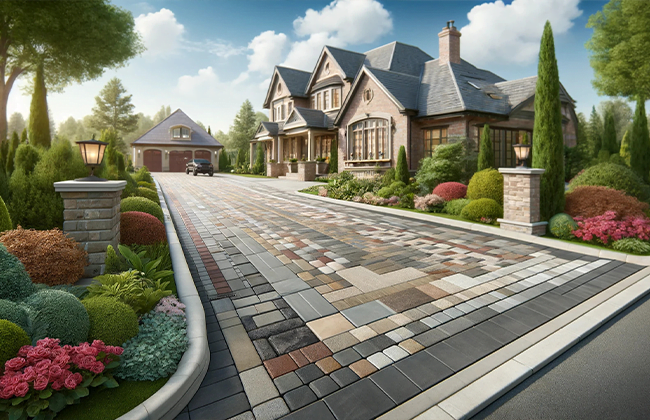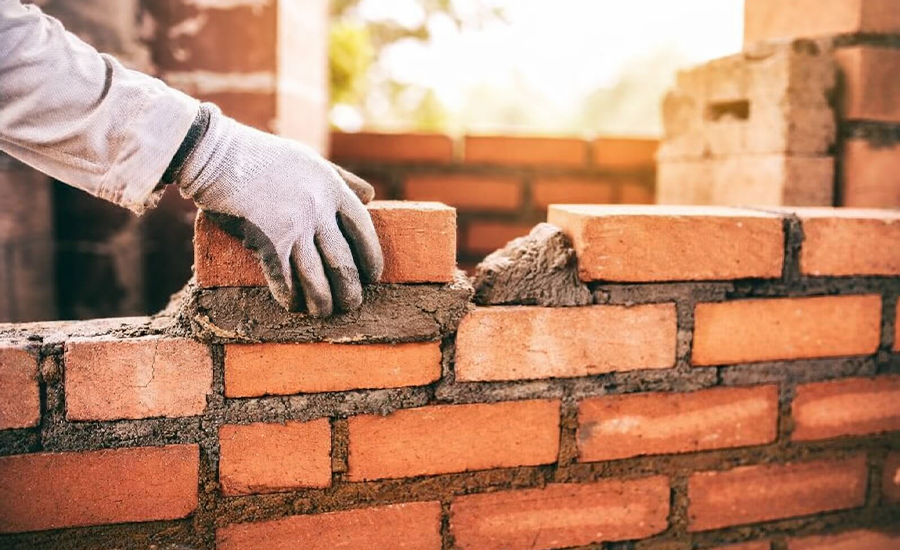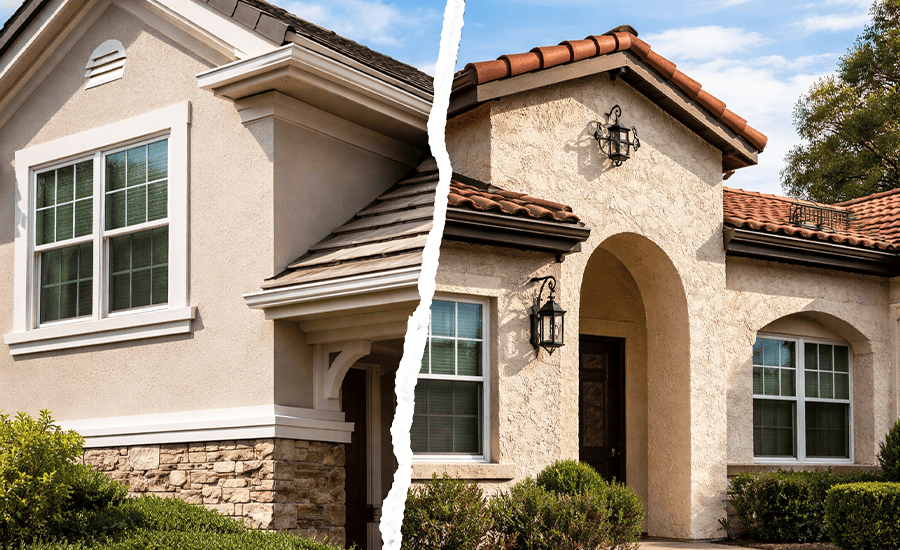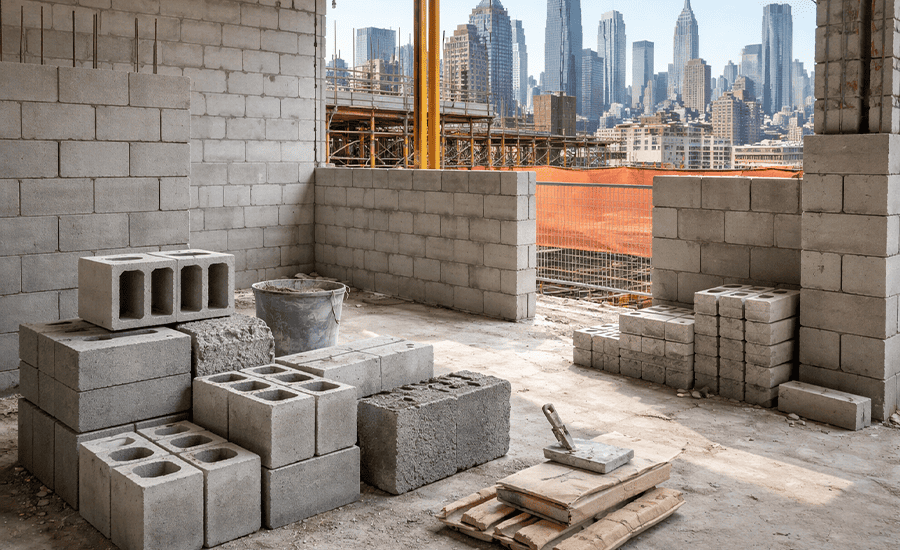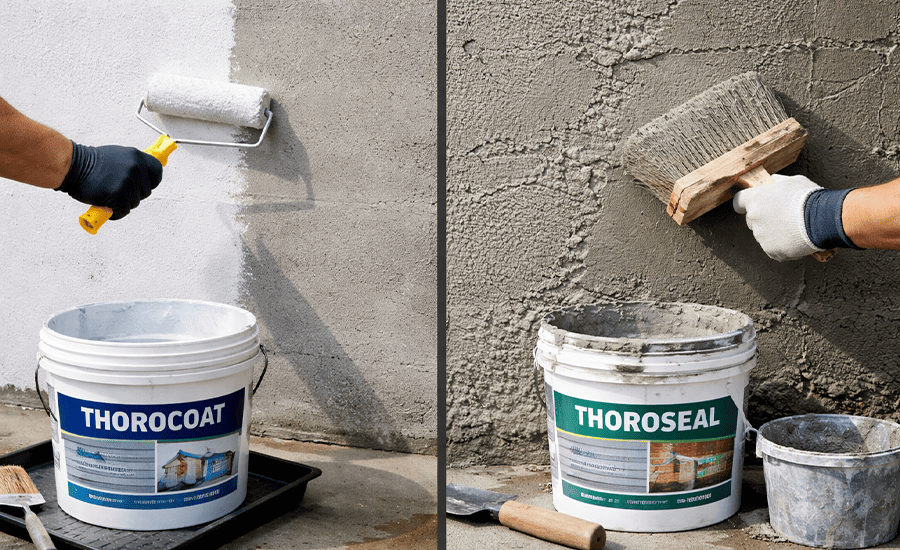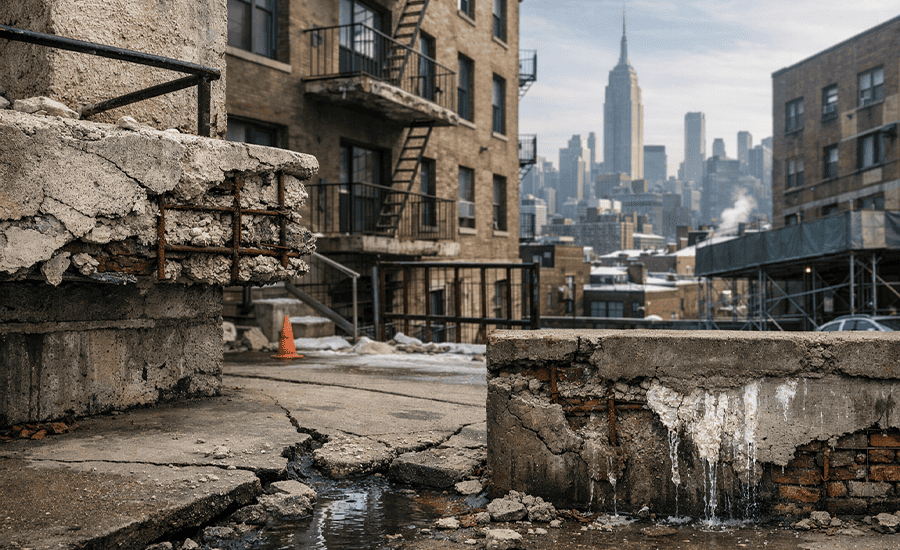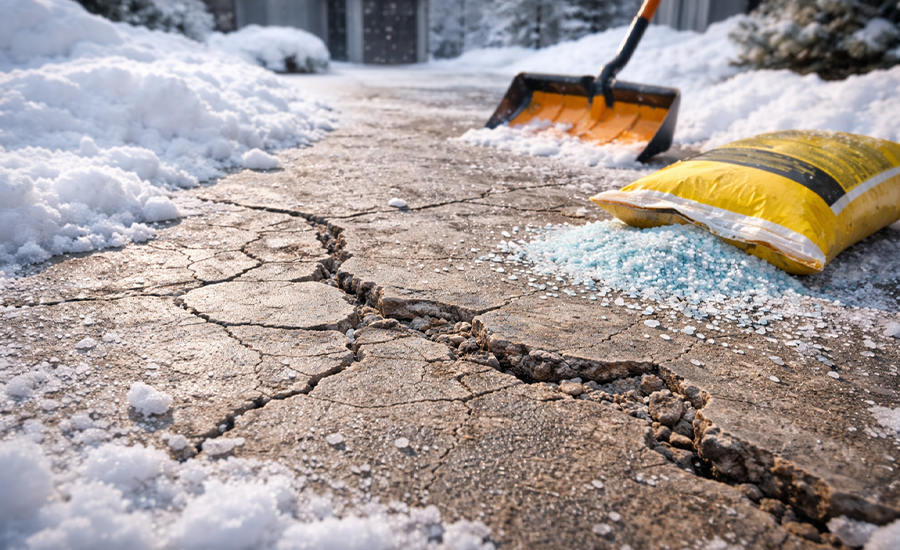Hey folks, today we’re talking all about the ‘best pavers for driveway.’ Your driveway is the unsung hero of your home’s exterior, playing a crucial role in both functionality and curb appeal. Choosing the right pavers can transform your driveway from just a place to park your car to a standout feature of your home’s facade. In this comprehensive guide, we’ll explore various options to help you find the perfect pavers for your driveway, balancing both durability and style. So, let’s dive in and discover what makes for the best pavers for your driveway needs!
Understanding Driveway Pavers
Hey there! Before you dive into picking pavers for your driveway, let’s get a lay of the land. Understanding what pavers are and how they work is super important for making the right choice. It’s all about getting the basics down.
What Are Pavers?
Let’s talk about pavers. These are those cool slabs and blocks you’ve seen made from different materials like concrete, brick, natural stone, and more. Not just for looks, they play a big role in creating driveways that are not only functional but also add to the beauty of your outdoor space.
Types of Driveway Pavers
Now, let’s talk variety! Pavers come in all sorts of materials – concrete, brick, stone, you name it. Each type has its own perks and personality. So, we’ll explore these options to find what suits your driveway the best.
Concrete Pavers
Now, let’s dig into concrete pavers. They’re a big hit for driveways. Why? Because they’re tough as nails and come in a bunch of designs. They’re the chameleons of the paver world, mimicking the look of fancy brick or natural stone, but guess what? They’re easier on your wallet!
Brick Pavers
Moving on to brick pavers, these guys are like your favorite classic movie – timeless. They bring that traditional vibe to your driveway, are sturdy as heck, and with a bit of love and care, they’ll stick around for decades.
Natural Stone Pavers
Then there’s the natural stone pavers. We’re talking granite, limestone, slate – the crème de la crème of uniqueness. Every piece tells its own story, adding a splash of luxury and individuality to your driveway.
Porcelain Pavers
Last but not least, porcelain pavers. These newcomers are shaking things up in the driveway scene. Super durable, a range of cool designs, and they don’t fade or stain easily. If you’re looking for something modern and resilient, these are your go-to!
Installation and Maintenance
Let’s dive into the nuts and bolts of creating your perfect driveway: Installation and Maintenance. This is where we turn your paver dreams into a solid, long-lasting reality. It’s all about laying the groundwork properly and keeping up with easy yet crucial upkeep. Let’s get started!
Preparing the Base
Alright, let’s roll up our sleeves and start from the ground up. Preparing the base is like setting up a strong foundation for your house. It’s critical for your driveway’s lifespan. This means we dig, level, and compact that soil to create a solid base. Then, we layer it up with gravel and sand. Why, you ask? Well, this makes sure your pavers have a strong, stable bed to lie on and they won’t shift or sink over time.
Laying the Pavers
Now, onto the main event: laying those pavers. This part’s a bit like putting together a jigsaw puzzle, but on a larger scale. You’ve got to place each paver just right. They should be evenly spaced with a proper alignment. Also, don’t forget the slope for drainage – it’s like building a mini runway for rainwater so it doesn’t pool on your driveway.
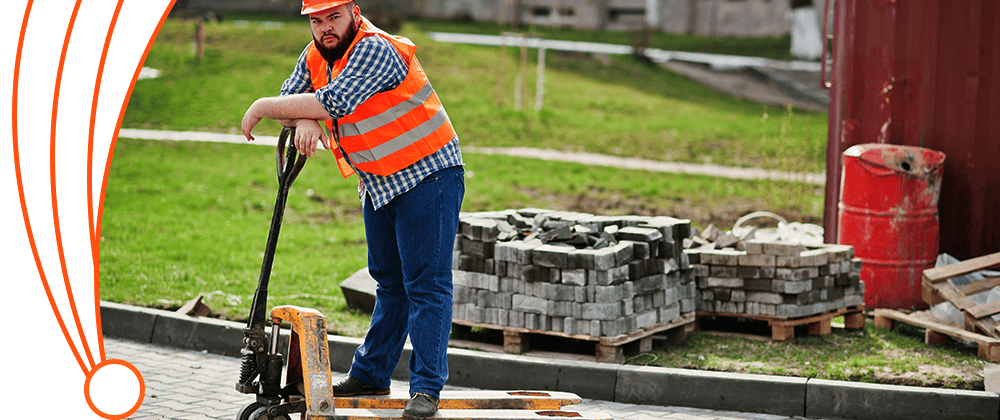
Maintenance Tips
And hey, let’s keep those pavers looking sharp! Protect them against stains and weather damage by sealing them. Think of it as putting sunscreen on your driveway. Plus, get into the habit of regular cleaning and keeping those pesky weeds in check. It’s a bit like taking your car for regular tune-ups – a small step to ensure everything runs smoothly for years to come.
Design Considerations
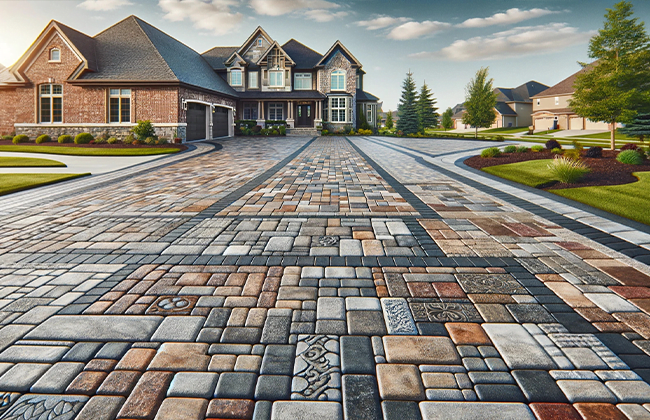
Got the paver types down? Great! Now it’s time to talk design. This part’s fun – it’s all about choosing colors, textures, and patterns that not only look cool but also work with your home’s vibe. It’s like dressing up your driveway!
Choosing the Right Color and Texture
Okay, let’s get into the fun part – picking the right color and texture for your pavers. This isn’t just about what you like, but also what complements your home’s style. Think about it, the right color can make your driveway pop or give it a classy, understated look. And texture? It’s not just for looks; it also affects how slippery the surface is, which is super important for safety. Whether you’re into the smooth sophistication of concrete or the rustic charm of natural stone, the key is to choose a color and texture that not only looks good but feels right for your home.
Mixing and Matching Pavers
And hey, who says you have to stick with one type or color? Mixing and matching different pavers can give your driveway a totally unique look. Imagine combining the earthy tones of brick with the sleekness of concrete – that could really set your driveway apart! Just remember, it’s like putting together an outfit; you want the colors and patterns to work together, not clash.
Cost Analysis
Here’s a neat table to help you get a grip on what different pavers might cost you. We’re talking about prices per square foot, installation costs, and what you might be spending yearly to keep them looking sharp. Plus, check out how long each type typically lasts. Remember, prices can vary based on where you live and the specifics of your project.
| Paver Type | Price per Sq. Ft. | Installation Cost per Sq. Ft. | Annual Maintenance Cost | Lifespan |
| Concrete Pavers | $10-$15 | $5-$10 | Low | 20-25 years |
| Brick Pavers | $15-$20 | $10-$15 | Medium | 25-30 years |
| Natural Stone Pavers | $25-$40 | $15-$25 | High | 30-40 years |
| Porcelain Pavers | $20-$30 | $10-$20 | Low | 25-30 years |
Keep in mind, this table is a rough guide. The actual costs can shift depending on various factors. But it’s a solid starting point to help you plan your budget. And hey, investing in the right pavers can not only make your driveway look awesome but also bump up your property’s value in the long run!
Price Comparison
Now, let’s talk money. The cost of pavers can swing quite a bit depending on what you go for. Concrete pavers are usually your wallet-friendly option. They get you that stylish look without breaking the bank. On the other end, natural stone pavers are more of a splurge – they can be pricey, but oh boy, do they look fancy.
Long-Term Investment
But here’s the thing, it’s not just about upfront costs. Think about long-term value. Sure, natural stone might make your wallet wince at first, but it’s tough, low maintenance, and can really stand the test of time. So, while you might spend more now, in the long run, it could be a smarter investment. It’s all about balancing what you can spend now with what will pay off down the road.
Environmental Impact
Hold on, we’re not done yet! Let’s give a nod to Mother Nature. Did you know pavers can be eco-friendly as well as eye-catching? We’re going to delve into options like permeable pavers and those made from recycled materials. These choices are not just good for your driveway; they’re a high-five to the environment. It’s about paving a way that’s as green as it is great-looking!
Permeable Pavers
Hey, let’s chat about permeable pavers. These guys are kind of like the eco-heroes of the paver world. Why? They’re designed to let water pass through them. This means less water running off and causing trouble elsewhere. Instead, the water seeps back into the ground, keeping things natural and balanced. This is awesome because it reduces flooding and stops all those pollutants from stormwater from getting into our waterways. Plus, they help out with drainage issues. So, if you’re thinking green, permeable pavers are a solid choice for your driveway.
Eco-Friendly Options
And here’s another cool thing – some pavers are made from recycled materials! That’s right, things like old concrete or reclaimed stone. Using these means we’re not depleting more resources, and we’re giving new life to materials that would otherwise end up in a landfill. So, not only are you getting a snazzy driveway, but you’re also doing your part for the planet. It’s like hitting two birds with one stone – you get a great-looking driveway and a pat on the back from Mother Nature!
Conclusion:
And that’s a wrap on our deep dive into the ‘best pavers for driveway‘! From considering the durability and aesthetic appeal to understanding the environmental impact and maintenance needs, we’ve covered it all. Your driveway is more than just a functional space; it’s an opportunity to enhance your home’s overall charm. We hope this guide has armed you with the knowledge to choose the perfect pavers for your driveway, creating a welcoming and lasting impression for your home. Remember, the right pavers can significantly elevate your driveway and, by extension, your entire home.
FAQs:
Q: What are the most durable ‘best pavers for driveway’?
A: When it comes to durability, concrete and brick pavers top the list. They withstand heavy traffic and extreme weather, making them ideal choices for long-lasting, robust driveways.
Q: How can I choose the right style of ‘best pavers for driveway’ for my home?
A: Consider your home’s architecture and color scheme. The pavers should complement your home’s style, whether it’s modern or traditional. Texture, color, and pattern play a big role in creating a cohesive look.
Q: Are there eco-friendly ‘best pavers for driveway’ options?
A: Absolutely! Look for permeable pavers or those made from recycled materials. These options are not only environmentally friendly but also offer unique aesthetic appeal and practical benefits like improved drainage.
Q: How often do the ‘best pavers for driveway’ need maintenance?
A: Generally, pavers should be cleaned and resealed every 2-3 years. This frequency can vary based on the material and your local climate. Regular maintenance extends their lifespan and keeps them looking great.
Q: Can I install the ‘best pavers for driveway’ myself?
A: DIY installation is possible, especially for experienced home improvement enthusiasts. However, for best results and longevity, professional installation is recommended, especially for more complex patterns and materials.



